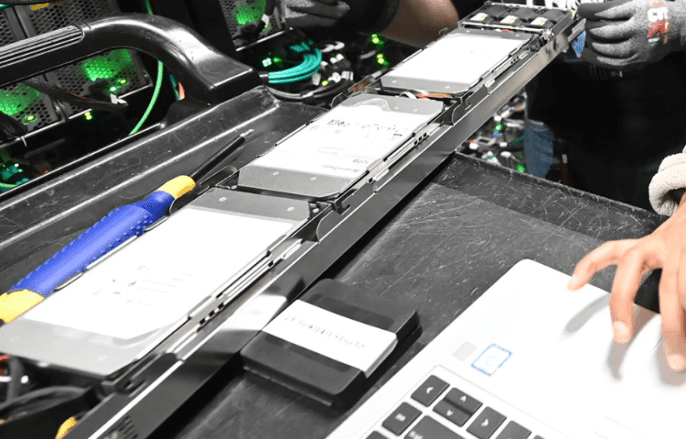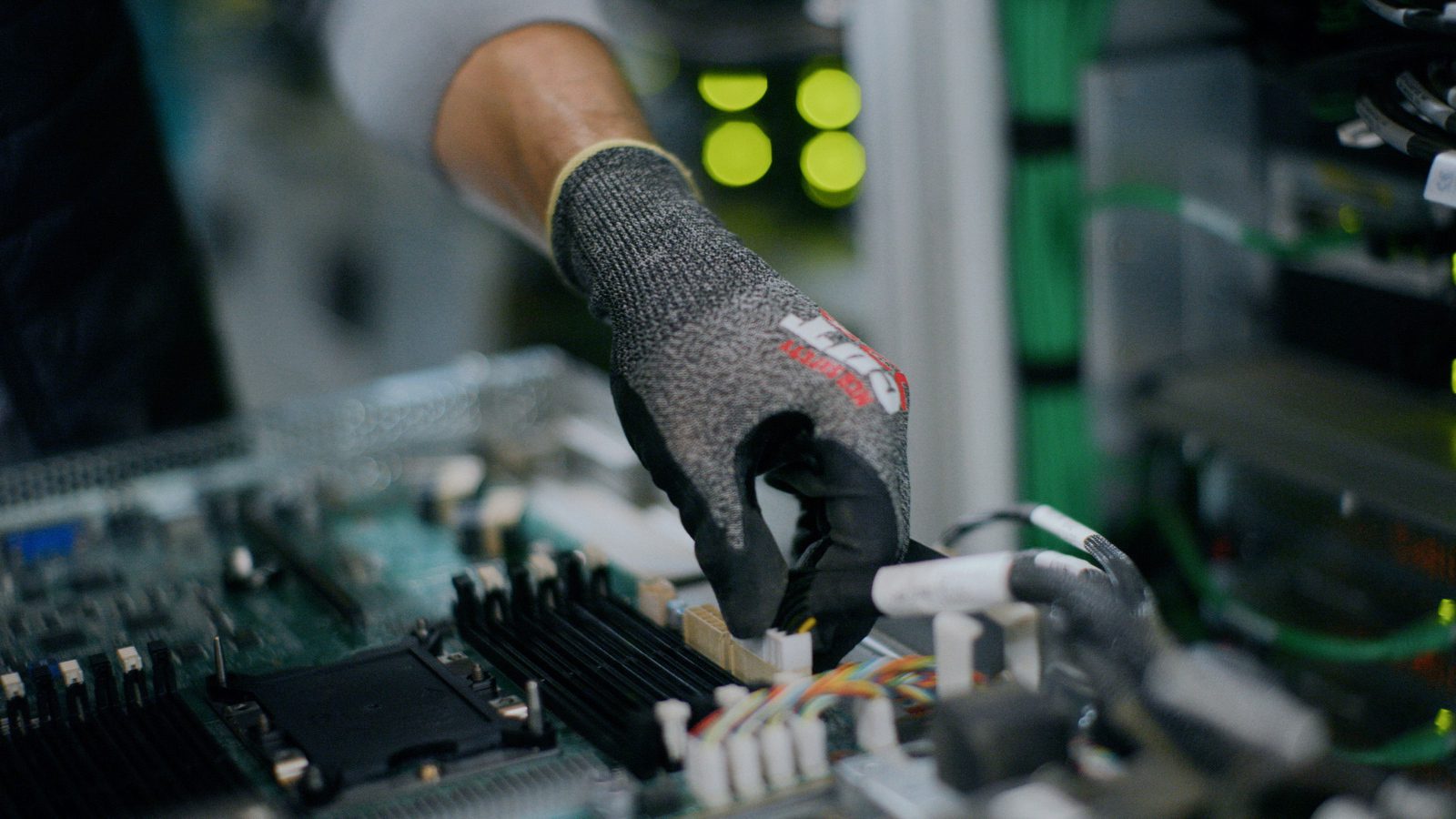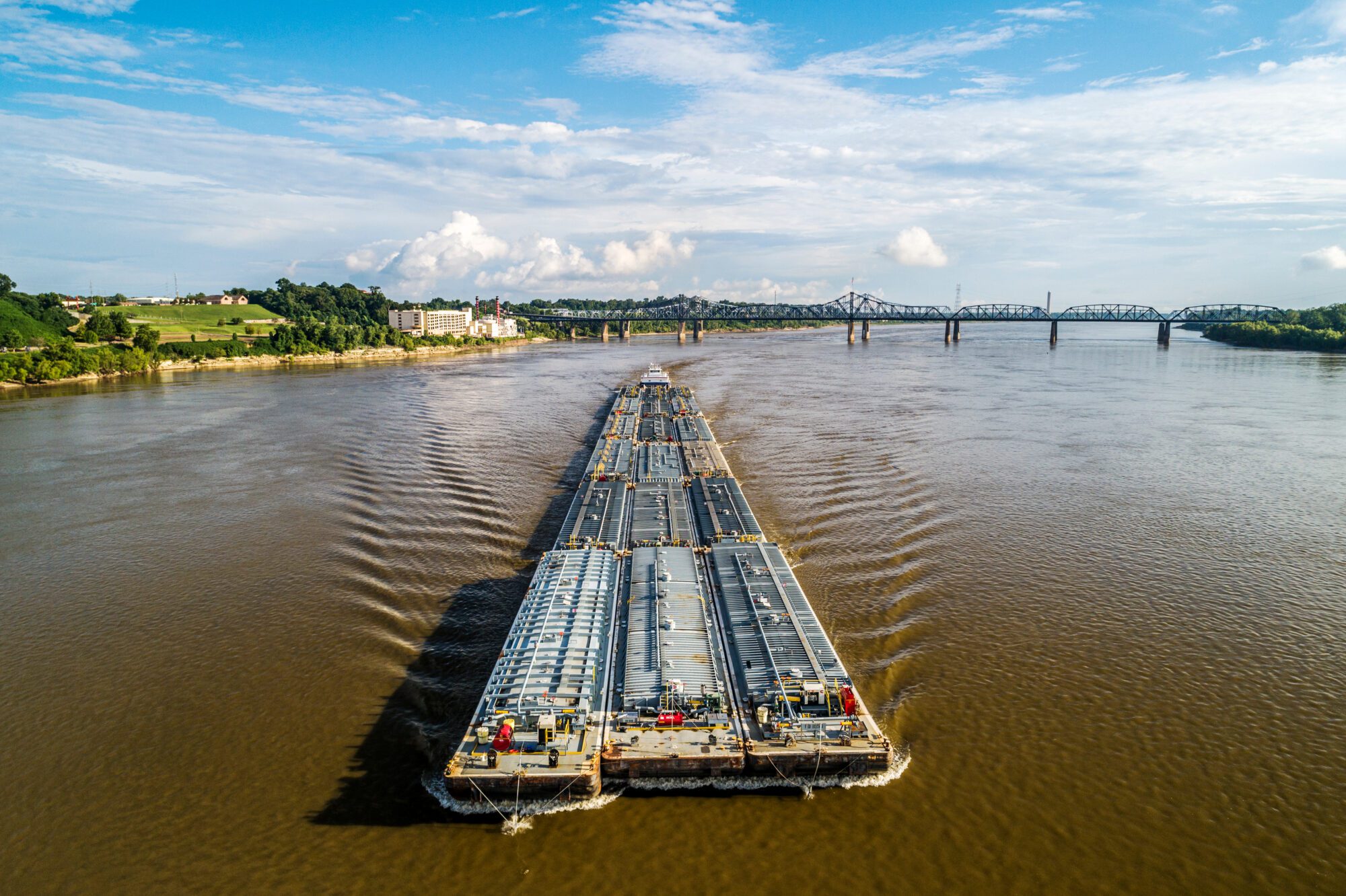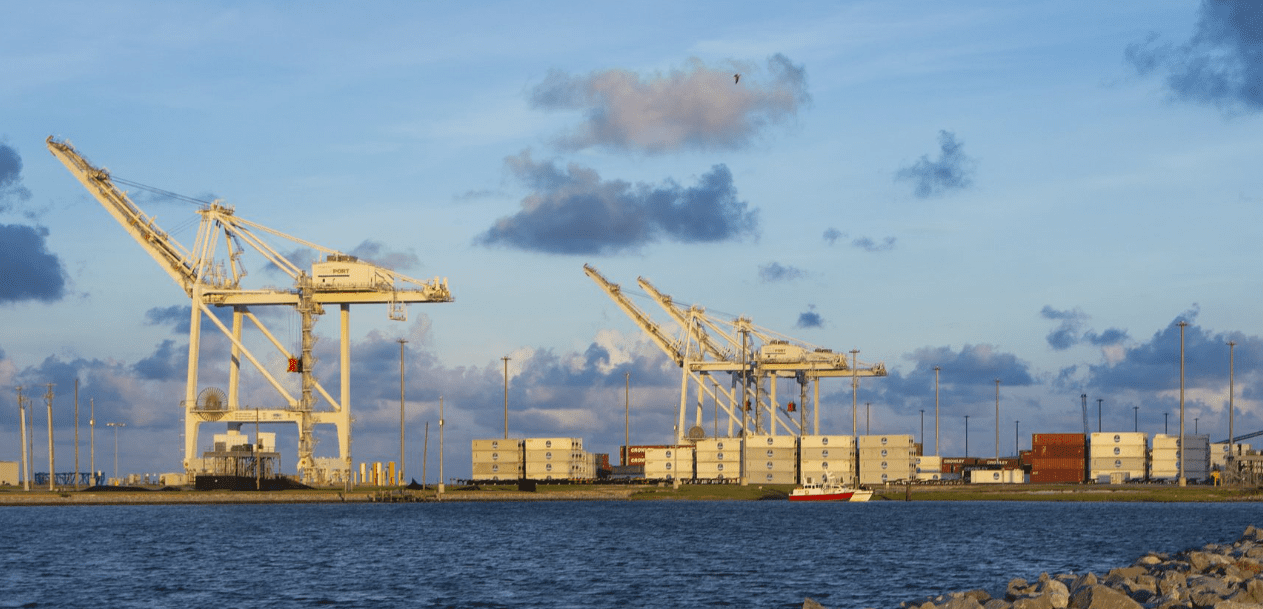
(Photo from Amazon Web Services)
- Kelley Williams says Amazon came to Mississippi because it got a good deal on cheap reliable electricity but exempting the project from PSC oversight may have thrown Entergy’s 461,000 customers under the bus.
The Governor recently announced that Amazon Web Services will spend $10 billion on two hyperscale data centers in Mississippi. This is a big deal for Mississippi and for Madison County – where site prep for the first data center is underway. Data centers house thousands of servers that receive, store, and process digital data. They make the World Wide Web work. They use lots of electricity.
Their need for lots of electricity is what brings Amazon here. Mississippi’s electric utilities can generate almost unlimited electricity – cheap reliable electricity using natural gas from pipelines that cross the state from Texas and other western states headed to northeast markets. Amazon has contracted with Entergy Mississippi for electricity. It’s one of 50 utilities that have legal monopolies to generate, transmit, and/or distribute (sell) electricity in Mississippi. It’s one of only two utilities that make a profit doing this. The others do it at cost. Entergy’s rates are among the highest of all 50 utilities.
Entergy Mississippi is owned by Entergy Corporation which also owns utility monopolies in Louisiana, Arkansas, and Texas. Entergy Corporation stockholders received $918 million in dividends last year from profits on electricity it sold in Mississippi and other states.
Amazon’s contract terms with Entergy Mississippi and its price of electricity are secret. Entergy Mississippi also sells electricity to 461,000 other customers in 45 Mississippi counties where it has a monopoly. Their price is not secret. It’s vetted and posted by the Mississippi Public Service Commission (PSC). That’s how things worked before the Governor and the Legislature made Entergy Mississippi’s Amazon deal off limits for the PSC. It’s a safe bet that Amazon’s price is much lower than Entergy Mississippi’s other customers.
Amazon’s lower price is reasonable. Why? Because Amazon is a big customer. Probably the biggest in Entergy Corporation’s four-state monopoly territory. And it’s not a captive customer. It didn’t have to come to Mississippi. It has data centers in 20 other states. It came here because it got a good deal on cheap reliable electricity.
The deal requires Entergy Mississippi to build probably two new combined cycle natural gas plants to generate electricity for Amazon plus some extra. And to upgrade and add distribution infrastructure. Entergy Mississippi’s CEO says it will spend $2-3 billion on this. Including several hundred million on solar electricity – which Amazon required as part of the deal. (Virtue signaling?) Will the data centers actually use intermittent solar electricity? And risk blackouts? Would you – if you have a choice?
Entergy Mississippi’s CEO likes solar power. He says it’s an industrial recruiting advantage. It probably is when recruiting virtue signaling woke prospects. Two former PSC commissioners who received solar company campaign contributions rubber stamped Entergy Mississippi’s solar projects. They were not reelected. Does Entergy Mississippi already have enough solar plants to destabilize the grid?
Entergy’s CEO also says many PSC regulatory decisions have “valued” the important role power plays in economic development – and that Entergy Mississippi is in the economic development business. It’s true that former PSC commissioners have rubber stamped Entergy Mississippi and Mississippi Power’s economic development projects that raised rates (e.g., 17% rate increase for unneeded electricity for Mississippi Power customers from the failed Kemper County Lignite Plant). Some former commissioners have seemed deferential to Entergy Mississippi and Mississippi Power projects. That’s called Regulator Capture.
But there are three new PSC sheriffs in town after the last election. They might actually do their job — if given a chance. The PSC was created in 1938 to be a public utility watchdog. Electric utilities were placed under its jurisdiction in 1956. Utilities whose rates are cost plus a guaranteed profit are tempted to pad costs. They need watchdogs. Entergy Mississippi’s rates are cost plus.
Entergy Mississippi’s two new plants for Amazon will replace ancient generating plants that should have been retired years ago. The old plants’ high cost electricity may explain Entergy Mississippi’s upper tier rates. The new plants will be much more efficient. And they will probably have cheaper natural gas fuel due to market conditions. So their electricity could be cheaper. They will probably have more capacity than Amazon needs. Their excess capacity can supply Entergy Mississippi’s other customers. It could be cheaper for them too. But it may not. Why?
The Governor’s and the Legislature’s incentives for Entergy Mississippi’s Amazon deal could actually increase rates for other customers. Their rates are cost plus a guaranteed 10%+ profit for Entergy. So the more Entergy Mississippi spends on the new plants and infrastructure for Amazon, the higher its rates. How do the incentives increase Entergy Mississippi’s cost? And rates?
One, they exempt Entergy Mississippi from competitive bidding. Hello high cost Sweetheart Contracts. (Smells like Jackson’s garbage contract mess?) Two, Entergy Mississippi can begin construction before it receives government permits and approvals. If there are mistakes that require do-overs later, customers pay for both. And Entergy Mississippi gets a 10%+ profit on both. The mistakes are deemed “used and useful.” So they automatically go in the rate base. When mistakes are profitable, you can expect more mistakes.
You may remember that construction on the Kemper Plant began before engineering was complete. So, there were mistakes and do-overs. But the mistakes were not deemed used and useful. Customers didn’t pay for them.
Three, the historic 4% cap on Entergy Mississippi’s annual rate increases is removed. Thus, there are no limits on future rate increases related to Amazon’s data centers. If there are penalties for failure to meet Amazon’s contract terms, will Entergy Mississippi customers pay for these too? Entergy Mississippi’s residential bills have increased 28% over the last 3 years. Will they increase even more as a result of the Amazon deal?
If they do, you might think the Governor and the Legislature threw Entergy Mississippi’s 461,000 customers under the bus as a sacrifice to the Economic Development Gods when they exempted the Amazon project from PSC oversight.
And you might be right.











